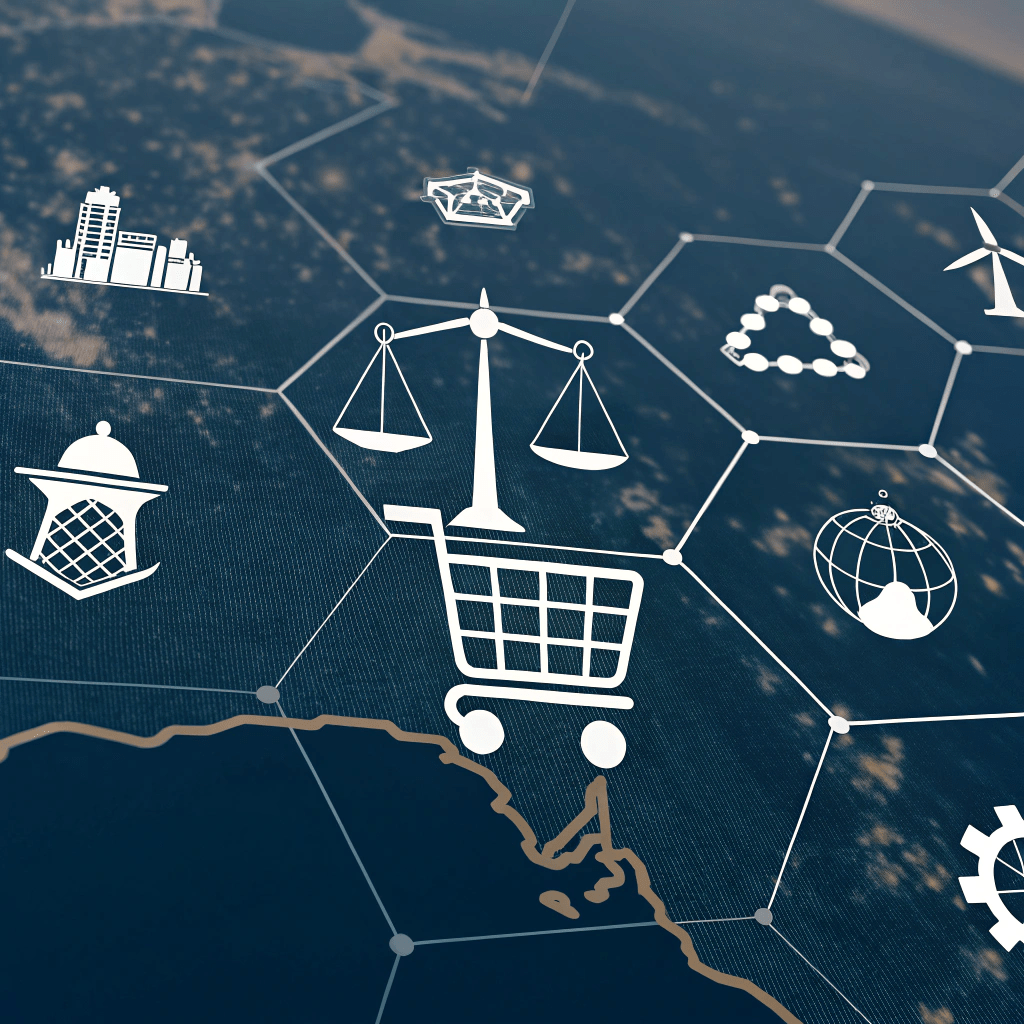Explore the Future of Business with Web3
Why Your Australian Business Should Consider Web3 Integration
Embrace the next wave of digital transformation by integrating Web3 technologies into your business strategy. Discover how this innovation can drive growth and enhance connectivity.
Introduction
You might have read about the basics of Web3 and decentralization, but you might still be wondering: is this relevant to my Australian business? The answer for many forward-thinking companies is increasingly yes. Web3 integration, moving beyond simple cryptocurrency speculation, offers tangible strategic advantages and opens up new avenues for growth, engagement, and efficiency that traditional Web2 approaches can’t provide alone.
For Australian businesses looking to innovate, build stronger customer relationships, and streamline operations in an increasingly digital world, exploring Web3 integration isn’t just about staying ahead of the curve – it’s about unlocking new potential. This guide explores the compelling reasons why your Australian business should consider integrating Web3 technologies.
What is Web3 Integration?
Web3 integration involves connecting your existing business systems (Web2) with decentralized technologies (Web3) like blockchain, smart contracts, and digital assets. It’s not about replacing your entire business model, but strategically leveraging Web3 elements to enhance specific processes, offerings, or customer interactions.
How Web3 Integration Differs from Web3 Basics
While Web3 basics focus on the principles of decentralization and distributed networks, Web3 integration emphasizes the practical application of these technologies in real-world business scenarios. This involves creating new business models, improving user experiences, and fostering innovation through the adoption of decentralized systems.
Benefits of Web3 Integration
Integrating Web3 technologies offers numerous benefits, including increased data security, improved transparency, and enhanced customer engagement. By adopting these technologies, businesses can streamline operations, reduce costs, and unlock new growth opportunities in the digital economy.
Compelling Reasons for Australian Businesses to Consider Web3 Integration

Enhanced Customer Engagement and Loyalty:
Web3 technologies like tokens and NFTs can revolutionize loyalty programs, turning passive points into valuable, tradable digital assets that offer unique perks and build a stronger sense of community and ownership among your customers.
New Revenue Streams and Business Models:
Explore selling digital assets (NFTs), creating token-gated access to exclusive content or services, or building decentralized marketplaces. Web3 can unlock entirely new ways to monetize your offerings and engage with your audience. Iotric highlights new monetization models and incentives as a key benefit of Web3 development.
Increased Transparency and Trust:
Blockchain’s immutable ledger can provide unparalleled transparency in areas like supply chain tracking, verifying product authenticity, or managing data records. This builds trust with customers and partners. Amaris Consulting discusses how Web3 builds trust through transparency.
Improved Efficiency and Automation:
Smart contracts can automate agreements and transactions when predetermined conditions are met, reducing the need for intermediaries, minimizing errors, and streamlining business processes. Smart contracts automating business logic is highlighted as a benefit by iotric.
Data Ownership and Privacy:
Web3 principles can allow you to give users more control over their data, potentially building trust and offering new models for data management and privacy compared to centralized Web2 platforms. Web3 technology enhancing data privacy and security is a key point made by GEM.
Early Mover Advantage in the Australian Market:
While Web3 is growing globally, practical business adoption in Australia is still in its earlier stages in many sectors. Strategically integrating Web3 now can position your business as an innovator and differentiate you from competitors in the local market. Some Australian companies are already exploring Web3 applications.
Practical Examples for Australian Businesses
Imagining how abstract Web3 concepts translate into real-world business applications can be challenging. Here are some practical examples of how Australian businesses, or types of businesses, could consider Web3 integration:
- Revolutionizing Loyalty Programs (Retail/Hospitality): Instead of traditional points systems, an Australian cafe chain could issue digital tokens to loyal customers for each purchase. These tokens could be traded with other customers, redeemed for exclusive items or experiences (like a “skip the queue” token), or even used to vote on new menu items. This creates a more engaging and valuable loyalty system with a built-in secondary market, increasing customer engagement and data ownership.
- Enhancing Supply Chain Transparency (Agriculture/Manufacturing): An Australian wine producer could use blockchain to record every step of their winemaking process, from grape harvesting to bottling and distribution. Each bottle could have a QR code linked to the blockchain, allowing consumers to verify the wine’s authenticity, origin, and even environmental impact throughout its journey. This builds trust with consumers and combats counterfeiting.
- Streamlining Freelancer Payments and Agreements (Creative/Service Industries): An Australian design agency working with freelancers could use smart contracts to automate payment upon completion of agreed-upon milestones. The smart contract holds the payment securely and releases it automatically when both parties confirm the work is done, reducing administrative overhead and ensuring timely, trustless transactions.

- Creating Unique Digital Collectibles & Experiences (Arts/Entertainment/Sports): An Australian sports team could issue NFTs for memorable moments, player cards, or virtual merchandise. These NFTs provide fans with verifiable digital ownership and can unlock exclusive experiences like virtual meet-and-meets or access to private online communities. This opens new revenue streams and deepens fan engagement.
- Decentralized Data Sharing for Research (Healthcare/Research): Australian research institutions could explore decentralized platforms to allow patients to share specific health data securely and with granular control over who accesses it, potentially accelerating medical research while enhancing patient privacy and data ownership.
- Tokenizing Community Assets or Projects (Community/Non-Profit): A local Australian community group raising funds for a public garden could issue tokens representing a stake in the project or specific benefits (like access to special events). This can democratize investment and engagement in community initiatives.
Considerations for Australian Businesses

While the potential is exciting, Australian businesses considering Web3 integration should think about:
- Regulation: Staying informed about the evolving regulatory landscape for cryptocurrencies, tokens, and blockchain applications in Australia. The Law Society Journal discusses the path towards an Australian crypto asset services licence, and Piper Alderman provides “Blockchain Bites” on Australian crypto regulation.
- Technical Expertise: Web3 technologies require specialized skills for development and integration.
- User Adoption: Is your target audience ready and willing to engage with Web3 elements?
- Costs: Implementing Web3 solutions can involve development costs and potential transaction fees.
- Identifying Relevant Use Cases: Focus on integrations that provide genuine value to your business and customers, not just adopting technology for technology’s sake.
Unlock the Future with Web3 Integration
Discover how our expert team at Tr1f3cta can seamlessly integrate Web3 technologies into your business, providing a competitive edge in the digital landscape. Our services bridge the gap between Web2 and Web3, offering tailored solutions for Australian enterprises. Learn more about our services and see how we can transform your business today.
Conclusion
Web3 integration is no longer confined to the realm of crypto enthusiasts; it presents practical and innovative opportunities for Australian businesses to enhance customer engagement, create new revenue streams, improve transparency, and increase efficiency. By understanding the potential, carefully considering the implications (including regulation), and partnering with experts, your business can strategically leverage Web3 to gain a competitive edge and thrive in the evolving digital economy.
#Web3Integration #AustralianBusiness #StartupInnovation #Web3forBusiness #Blockchain #SmartContracts #DigitalTransformation #NewBusinessModels #TechStrategy #AustraliaTech #Web2toWeb3 #Tf3comau #BusinessGrowth #InnovationAustralia #Web3Australia #BlockchainAustralia #CryptoRegulation #DigitalAssets



